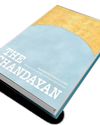Love and the varied emotions it evokes in us are the brain’s child, shows modern science.

THOSE OF US WHO GREW UP watching Bollywood movies were fed a generous dose of colourful scenes of the hero and heroine expressing their love for each other in the most acrobatic ways that often defied the laws of physics—running around trees, rolling down hillsides—all the while singing and dancing away with boundless energy! These memorable scenes may lead you to believe that a supple spinal cord, supported by a strong vocal cord, is all that is needed to express and respond to love. Modern brain science suggests otherwise.
‘Love’ is probably one of the most intriguing and poorly understood behaviours. What goes on inside the human brain when its owner is madly in love? Path-breaking research by Dr Helen Fisher provided the first glimpses, using MRI scans, of the brain of individuals intensely ‘in love’. These studies showed that feelings of romantic love, evoked by images of the beloved, activate dopamine-rich areas of the brain associated with reward and motivation, such as the ventral tegmental area and the caudate nucleus. Dopamine is a ‘neurotransmitter’ or a chemical that conveys feel-good signals between brain cells and activates the brain reward circuit, thereby making love a pleasurable experience. Interestingly, dopamine in these brain areas also plays a pivotal role in addiction to drugs and alcohol. In fact, the same dopamine-rich brain reward system gets hijacked by addiction. Perhaps Robert Palmer had it right when he sang Addicted to Love. But Tina Turner may ask—What’s Love Got To Do With It? A lot, if you ask the flies—yes, flies—in a 2012 study. Male fruit flies that had suffered sexual rejection drank a lot more alcohol compared to the lucky flies that mated with female flies. Why blame ‘Devdas’ when even failed lovers amongst fruit flies drown their sorrows in alcohol?
Diese Geschichte stammt aus der March 20, 2017-Ausgabe von India Today.
Starten Sie Ihre 7-tägige kostenlose Testversion von Magzter GOLD, um auf Tausende kuratierte Premium-Storys sowie über 8.000 Zeitschriften und Zeitungen zuzugreifen.
Bereits Abonnent ? Anmelden
Diese Geschichte stammt aus der March 20, 2017-Ausgabe von India Today.
Starten Sie Ihre 7-tägige kostenlose Testversion von Magzter GOLD, um auf Tausende kuratierte Premium-Storys sowie über 8.000 Zeitschriften und Zeitungen zuzugreifen.
Bereits Abonnent? Anmelden

FINGER CLICKING GOOD
Finally there’s a Smartphone that’s fit to fire your DSLR

RAISING THE BAR
In the dynamic world of mixology, where every drink tells a story and every pour is a masterpiece, a new chapter is being concocted by some of the bars. Here are eight bars that stirred up a riot.

TRUE BLUE
BLUE MAY BE a colour traditionally associated with all things royal, but when it comes to haute horology, especially Breguet, the hue lends its own cues.

DELICIOUS DINING WITH A SIDE OF LUSCIOUS VIEWS
Bonita, a quietly charming restaurant in Goa’s Arossim brims with flavour and a stunning landscape to boot.

A YEAR OF WONDER
Globetrotting to some of the more interesting travel options that spiced the calendar year

THE TASTE TEST - Some of the more interesting restaurants launched in Asia in 2024
In the dynamic culinary landscape of Asia, Spice embarks on a gastronomic journey through a kaleidoscope of noteworthy dining spots that shone through in 2024. From cosy havens celebrating rich cultural heritage using quality local ingredients to chic spaces blending global influences with a playful vibe, each venue offers something special, whether by the beach or beneath starry skies.

TECH TALK
From a Mac that became mini to gizmoheavy watches, from smart air purifiers to intelligent TVs, these top picks defined 2024.

BOOKS TO LOOK FORWARD TO IN 2025
Book review

PEACE ABOVE ALL
Devdutt Pattanaik offers an alternative view of the Harappan civilisation in his newest book, Ahimsa: 100 Reflections on the Harappan Civilization

A Wealth of SCHOLARSHIP
For art historian Aman Nath, 2024 was a great year for art books, demonstrating the range of India's cultural wealth